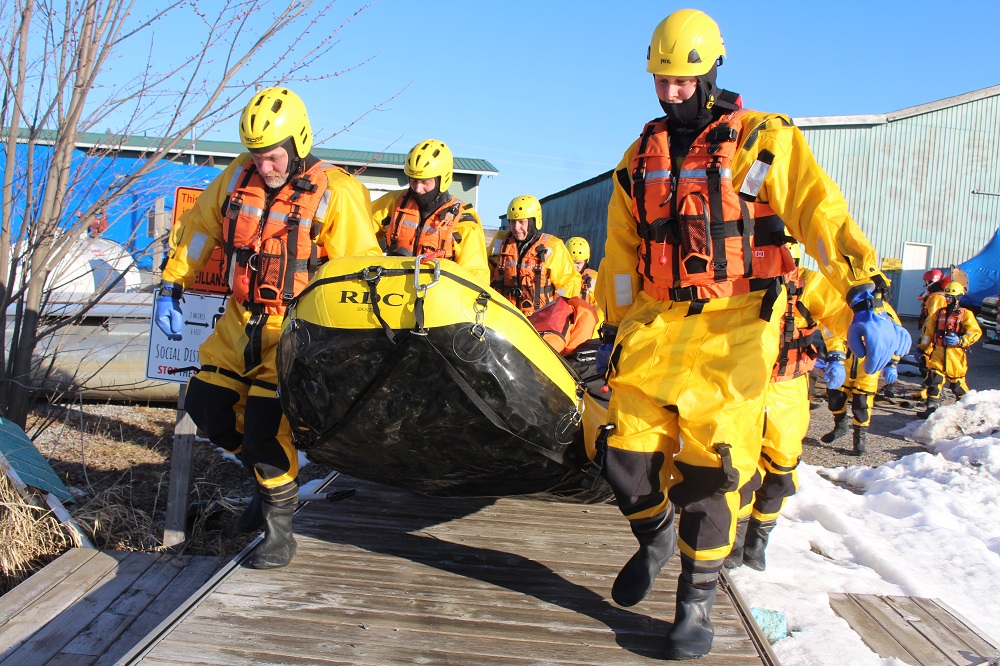After years of delay, Highlands East and Dysart et al fire departments received ice and water rescue training at Grass Lake March 20.
The Algonquin Highlands Fire Department taught the course. A handful of firefighters – four from Highlands East and six from Dysart et al – were instructed on how to conduct rescues on frozen lakes.
The course is required for the departments to perform such rescues should someone get in trouble on the ice. Instructor and Algonquin Highlands firefighter George Sharp said it is an important skill for County departments given the number of lakes in the area.
“We’ve got people, ratepayers and visitors spending time out on the ice,” Sharp said. “Need to be able to support the visitors and the locals when they get into trouble.”
The training comes after the Office of the Fire Marshall announced Jan. 13 it was closing the physical Ontario Fire College building to push a locally-based online model. The college had also stalled for years putting out an approved ice-and-water rescue course over a 2017 inquest into two Ontario firefighters who died in that type of training.
Departments such as Highlands East waited for an approved course before proceeding to train. That college course was set to go in spring 2020 – the first since 2014 – but was sidelined by the pandemic. But the course became deliverable this year and firefighters organized an in-house course, using instructors from Algonquin Highlands who had maintained training, Highlands East fire chief Christ Baughman said.
Highlands East is covering ice rescue costs using a community GoFundMe from 2017, which raised more than $20,000 after the death of cottager Bob Bell, who fell through the ice on Dark Lake. Baughman said they plan to train four more personnel in the fall so that each station would have one or two capable of starting a rescue before more backup arrives. After that, he plans to have the municipality modify its bylaws to include ice and water rescue by next winter.
“It’s a great success for us to be able to add this service, not only for the safety of our firefighters but the community,” Baughman said. “Something we weren’t able to do in the past. Now with the proper training, a firefighter won’t have to make a difficult decision or do something uninformed and ill-equipped.”
Dysart et al fire chief Mike Iles said his department has maintained ice rescue in its service, but it had been many years since it had been able to get new training while it waited an approved course.
“It was great to be working with several departments. The training itself was very informative and very worthwhile,” Iles said.
Sharp said the course included classroom time for theory, as well as practical time on the ice. Participants wore wetsuits and entered the icy waters of Grass Lake, performing different techniques.
Algonquin Highlands has maintained the rescue training for years, Sharp said. But he added it is more cost-effective to study with other departments, which is happening more often.
“The municipalities in the last two or three years are working more cooperatively than they have in the last decade. Things are going in the right direction,” Sharp said.





